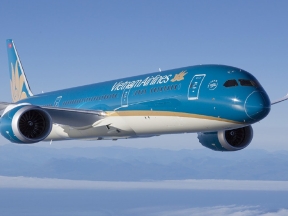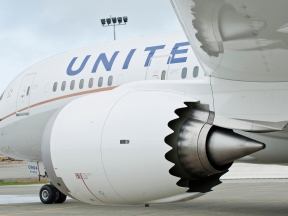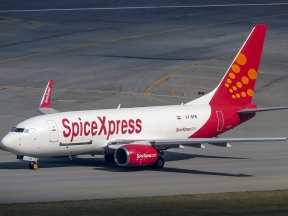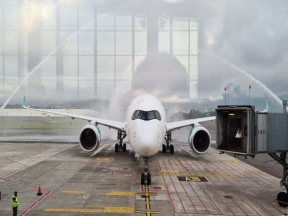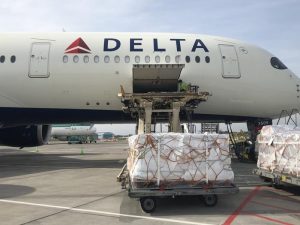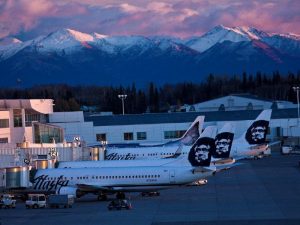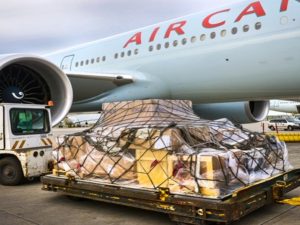Etihad Engineering, the largest commercial aircraft maintenance, repair and overhaul (MRO) services provider in the Middle East, has signed a strategic partnership with Israel Aerospace Industries (IAI), to provide Passenger to Freighter (P2F) conversions on Boeing 777-300ER’s. In 2019, IAI and GE Capital Aviation Services (GECAS) announced the launch of the Boeing 777-300ERSF, a programme which established a P2F conversion dubbed ‘The Big Twin’ denoting its status as the largest ever twin-engine freighter. While the Covid-19 pandemic has taken its toll on the aviation sector, cargo operations are offsetting operators’ losses, as it continues to play a critical role in facilitating international trade. As a result, industry forecasts show an increase in demand for wide-body freighter aircraft with long-haul capacity. Etihad Engineering will capitalise on their expertise and extensive capabilities for the specialised Boeing 777-300ERSF conversion. In the initial stage of the partnership, Etihad Engineering will facilitate towards two conversion lines accommodating multiple aircraft conversions per year.
Read More »Ethiopian Airlines teams up with IAI on new freighter conversion line
Ethiopian Airlines Group has teamed up with Israel Aerospace Industries (IAI) to launch a B767-300ER freighter conversion line in Ethiopia. Ethiopian Airlines Group chief executive Tewolde GebreMariam, said: “In line with our Diversified Aviation Business Model of Vision 2025, we have been increasing our cargo capacity in fleet, ground service infrastructure and cargo connectivity network. Accordingly, we are partnering with IAI, one of the global technology leaders in the Aerospace industry, in building a cargo conversion center in our MRO facilities in Addis Ababa Airport. The Cargo conversion center will commence its first business with three Ethiopian Airlines owned B-767-300 aircraft.” Yossi Melamed, IAI’s executive vice president and general manager of Aviation Group, said, “the partnership comes as the company witnesses a “sharp rise in demand for cargo aircraft” on the back of an acceleration in e-commerce demand due to the Covid-19 outbreak.”
Read More »Vietnam Airlines and WFS collaborate for Amsterdam Cargo Operations
Vietnam Airlines and Worldwide Flight Services (WFS) sign a multi-year contract as the airlines new cargo handling partner at Amsterdam Airport Schiphol. The contract will see WFS providing full cargo handling services for the airline’s twice-weekly Airbus A350-900 passenger freighter aircraft flights directly connecting freight forwarders, importers and exporters in Amsterdam and Vietnam’s Tan Son Nhat International Airport. Stephane Scholving, managing director of WFS in the Netherlands, stated, “Winning this new contract is a tribute to the responsiveness of our team in Amsterdam and the quality of our cargo handling operations. Vietnam Airlines initially asked for our assistance to handle an urgent flight and their positive experience of working with WFS has ultimately led to this long-term agreement. We now look forward to supporting the airline’s customers and flight operations in Amsterdam and contributing to Vietnam Airline’s growth in the Netherlands.”
Read More »United Cargo launches new website with improved tracking
United Cargo has launched a new customer facing website as it continues its digital development. The carrier said that new features include improved shipment tracking, simplified navigation and a mobile friendly design. “The new website launch will pave the way for a streamlined, enhanced and industry-leading digital experience for our customers around the world,” the carrier said. The carrier added that the new website is the first of several steps in United Cargo’s “digital transformation”, with more features and expanded functionality coming later this year.
Read More »SpiceJet announces transfer of logistics business to SpiceXpress
Budget airline SpiceJet today announced that it was transferring its cargo and logistics services with all the related assets and liabilities, including, know-how, trademark, licenses, franchises, customer contracts, distribution network etc on a slump sale basis to its subsidiary SpiceXpress and Logistics Private Limited. As per the last quarterly segment reporting by the company ended June 30, 2021, the logistics arm reported a net profit of INR 30 crore. The revenue increased by 285 per cent to INR 473 crore for the reported quarter as compared to INR 166 crore in the same quarter last year. “The proposed transfer of business to SpiceXpress will allow the new company to rapidly grow its innovative logistics platform and its unique fulfilment as a service business model.” said Ajay Singh, Chairman and Managing Director, SpiceJet SpiceXpress will also be able to raise capital independent of SpiceJet to fund this growth, he mentioned. Singh said he was confident that the performance of SpiceXpress as an independent entity will leverage and unlock significant value for SpiceJet and all its shareholders.
Read More »Menzies acquires Interexpresso in Central America
John Menzies plc (“Menzies”), the global aviation services business announces the expansion in Central America with the acquisition of Interexpresso and additional contract wins in the Oceania region. Menzies has agreed to acquire 51 percent of Interexpresso Costa Rica Corporación ILC, S.A. (“Interexpresso”) which will see Menzies’ footprint expand in Central America. Philipp Joeinig, chairman and CEO, said: “I am pleased to announce our expansion in the Central American region. We have found a knowledgeable partner in Interexpresso and, working together, we will be able to open doors in new, attractive, higher margin and emerging markets in the region.” Interexpresso is an aviation service provider operating in Central America and headquartered in Costa Rica. Interexpresso’s core business relates to cargo handling and aviation security services, primarily consisting of cargo document handling, cargo security screening and aircraft access control.
Read More »BLR Airport wins ‘Best Airport Staff in India & Central Asia’ at Skytrax World Airport Awards 2021
Collaborative efforts from members of the BLR Airport ecosystem and passengers’ endorsement of top-quality services saw Kempegowda International Airport Bengaluru (KIAB/ BLR Airport) being adjudged as ‘The Best Airport Staff in India and Central Asia’ at the Skytrax World Airport Awards 2021. “This is truly a fabulous reward for all of us working at the BLR Airport ecosystem as this recognition is based on passenger voting. A big thank you to all our passengers who appreciated our hard work and voted for us,” said Hari Marar, MD & CEO, Bangalore International Airport Ltd. (BIAL). “We dedicate this award to every member who has worked towards improving passenger experience at BLR Airport. I believe this award will add further impetus to our pursuit of excellence,” Mr. Marar added. This award is particularly significant considering the challenging year that the aviation industry has experienced following the outbreak of COVID-19.
Read More »Delta cargo celebrates 75 years of leading the industry
Seventy-five years ago, Delta made its official but humble entry into the cargo business. 200 pounds of freshly picked mushrooms loaded aboard a DC-3 destined for Atlanta, making farm-to-table a possibility decades before it became a culinary hashtag. That first week of operation in 1946, the airline carried a little bit of everything to customers across the U.S.: a 64-year-old, $1,500 soup tureen; 1,100 pounds of auto parts filling six crates; 450 pounds of candy; a box of silver coins. Delta planes had served the Allied cause during World War II, transporting everything from food and surgical supplies to weapons and auto parts overseas. That helped give Delta what was needed to turn cargo transport into a full-fledged business. “The airline has grown, and the nature of our Cargo business has changed significantly over the last 75 years, but we are still in the business of providing Best-in-Class service to our customers with any of their freight and logistics needs – large or small,” said Robert Walpole, vice president, Delta Cargo. “We are here to support our customers and communities in the U.S. and across the globe. We look forward to another remarkable 75 years.” Today, Delta Cargo offers access to industry-leading shipping solutions and carries on average 2.2 billion cargo tons every year. Whether it’s transporting life-saving pharmaceuticals, organs for transplant, fresh flowers, seasonal produce or beloved pets, Delta Cargo’s strong product portfolio provides world-class service for every customer’s needs.
Read More »ANC sees increase cargo volumes in first half of 2021
The Ted Stevens Anchorage International Airport (ANC) experienced record air cargo volumes during the first half of 2021 with a recovery in passenger traffic. Between January and June, 1.73 million metric tons of air cargo transited ANC, a 23.45 percent increase over the first half of 2020. “E-commerce ‘tech-celeration,’ port delays and low product inventories are causing a significant increase in air cargo activity. Our central location on the trans-Pacific trade lane, coupled with our efficient infrastructure and special transfer rights, have resulted in greater utilization of ANC by shippers to maximize their air-cargo potential,” said Jim Szczesniak, the Anchorage Airport Director. “We are seeing a continued shift in supply chains from periodic, container-sized shipments via ocean cargo to more regular, pallet-sized shipments via air cargo. With more than $1 billion in private sector cargo developments in the pipeline at ANC, we expect this growth trajectory to continue.”
Read More »IATA cargo rates platform welcomes Air Canada Cargo
The International Air Transport Association (IATA) welcomes Air Canada Cargo to the association’s IATA Net Rates air cargo rates platform, allowing the Canadian carrier to expand its digital offering to provide an additional digital option to its customers. Under the TACT Air Cargo Solutions umbrella, freight forwarders can access the latest information on rates, rules, tariffs, schedules and compliance information that can be accessed online or integrated with customer systems, accelerating the distribution of rates to market while simplifying and reducing the cost of rate handling procedures. “IATA is very pleased to welcome Air Canada Cargo to the IATA Net Rates platform to support its cargo rates distribution processes. We look forward to future collaboration with Air Canada Cargo,” said Frederic Leger, Interim senior vice president Commercial Services and president, CNS.
Read More » Cargo Breaking News
Cargo Breaking News


